It’s the last Friday in July. At the edge of Katama Bay just west of Wasque Point, a tiny plover chick skitters nimbly across a patch of sand flecked with shells and seaweed. Nearby, a parent bird keeps a watchful eye as the chick forages for food.
This has been a banner summer for shorebirds on Chappy beaches, with piping plovers, least terns and skimmers nesting in record numbers. Still, the newly hatched chicks face long odds for survival, as they are under pressure on all sides: from predators, humans and even the forces of nature that have shaped these dynamic barrier beaches for centuries.
The Trustees of Reservations — the venerable Massachusetts conservancy that owns or manages some 12 miles of diverse public beach from Norton Point to the Cape Pogue elbow — is under pressure on all sides too this summer: from angry landowners, fishermen and others over a new draft management plan that would have brought sweeping changes to these remote outermost beaches used by thousands of Islanders and visitors every year.
The draft plan was abruptly scrapped last week, barely a month after it was released. Acknowledging the public backlash, Trustees president John Judge said his organization would start over this fall, convening local stakeholders and others to draft a new plan.
“We’re going back to the drawing board,” Mr. Judge told the Gazette. “We want to expand the process and tap the collective intelligence of folks . . . including the many people that are passionate about the beach and passionate about the ecological treasure we have there.”
Three years in the making, the plan was grounded in broad scientific study by the Woods Hole Group around the effects of climate change on the beaches and tidelands at Norton Point, Wasque, Leland Beach and Cape Pogue. Leaders at the Trustees, one of the oldest land trusts in the country, described it as an innovative blueprint for the future as they wrestle with the increasingly complicated balancing act of managing privately held conservation lands for public use.
“We’re at the intersection of where recreation meets resiliency . . . they need to be connected with the urgency around stewardship,” Mr. Judge said.
“The issues that are being raised in the beach management plan are issues we have been thinking about for many years,” said Bob Mason, who heads the Chappaquiddick advisory committee for the Trustees, a local group. “Issues around shorebirds, challenges around OSVs [oversand vehicles] . . . and that third leg of complexity around climate change.”
But vocal critics — including the recently retired longtime Chappaquiddick beach superintendent for the Trustees — say the plan fails on a number of levels, did not include enough involvement from local stakeholders and is a troubling sign that the organization has grown out of touch with the Island community.
“They’re not communicating. They’re not talking to the neighbors,” said Chris Kennedy, who retired in August 2020 after working in various management capacities for the Trustees for 32 years. “Without community support, there is no plan.”
In a letter to Mr. Judge last month that was published in the Gazette, Mr. Kennedy blasted the draft management plan.
“I wrote the letter to provide constructive criticism,” Mr. Kennedy said by phone this week from Provincetown where he now lives. “I love the Trustees, I spent over three decades working for them for them . . . and when I saw the management plan and the tremendous disconnect between the authors of this plan and the community, I knew it was destined for failure.”
His letter has had a ripple effect, among other things sparking an online petition that collected more than 1,100 signatures in a matter of days. Much of the criticism is from those who believe that birds are being protected above the interests of sportsmen.
“There is no trust in the Trustees on this Island,” said Peter Sliwkowski, a Chappy resident, fisherman and tackle shop owner who founded the Facebook group MV Beach Access and started the petition. “Their orientation . . . has evolved into much more of a marketing focus.”
Mr. Sliwkowski said his group has since hired Mr. Kennedy as an independent consultant.
Darci Schofield, the Trustees Islands portfolio director for Martha’s Vineyard and Nantucket, bluntly acknowledged there had been gaps in communication over the management plan, pointing to senior staff turnover and other issues. Ms. Schofield, who previously worked at the nonprofit Trust for Public Land, began work on the Island in March. Mr. Judge, who formerly headed the Appalachian Mountain Club, took over as president in January.
“We could have done a better job [on communications] and we’ll own that,” Ms. Schofield said in an interview last week. Two days later, Mr. Judge announced that the plan would be rescinded, with upcoming meetings to discuss it cancelled.
There have been other pressures.
A couple that owns property adjacent to the Cape Pogue Light filed a lawsuit last year against the Trustees claiming that OSV use is overburdening the ecologically fragile area. The Trustees prevailed at a preliminary injunction hearing this winter, but the case remains pending in the Massachusetts Land Court. Citing the litigation, Ms. Schofield declined to provide any specifics around OSV sticker sales or visitor numbers at the Chappaquiddick properties. She also declined to comment on revenues from the Chappaquiddick properties.
“We are a private organization,” she said.
Meanwhile, she confirmed there had been vandalism this summer around shorebird nesting areas, and said young beach rangers had been confronted by angry beach goers. The incidents were all handled by Trustees staff and not reported to the police, Ms. Schofield said.
Mr. Kennedy said beach staff needs to be prepared to explain the rules and the rationale behind them.
“No one should be surprised the staff is being questioned,” he said. “People are being asked, ‘Why are you doing this?’ ... that’s not harassment, that’s part of the job.”
But Mr. Mason expressed consternation at the reports.
“One of the things that does concern me is the intensity and vitriol of the conversations [and] the impact on staff and rangers,” he said. “It seems inappropriate and unfair for people who are passionate about their work and trying to protect the land.” He concluded:
“Part of what we want to achieve is lessening the heat of the conversation and making sure the community understands it [the management plan] is a draft. I think sometimes the Trustees don’t get credit for listening and local engagement.”
On Friday morning Ms. Schofield deflated the tires on a white truck emblazoned with the Trustees logo and drove across the Dike Bridge on Chappaquiddick, a photographer and reporter in tow. The day was hot and windless. The Leland Beach oversand vehicle trail had reopened that morning after a nearly summer-long closure due to nesting plovers. The truck crawled slowly through deep sand, turning south along Poucha Pond. An osprey looked on from a solitary perch on an old piling in the pond.
The 100-acre stretch of beach that lies between the Dike Bridge and Wasque was acquired by the state in 1993 in an eminent domain proceeding that paid $1 million to the Leland family, which had owned the beach since the early 1900s. The state contracts with the Trustees to manage the beach, with a primary purpose of providing public access for fishing.
Farther south is Wasque Point, where the currents of Muskeget Channel collide with currents in the Atlantic, creating a powerful rip tide and making it a world-renowned spot for saltwater fishing. On Friday a handful of fishermen lined the beach, and as if on cue, one landed a good-sized bluefish just as the Trustees truck pulled into sight.
Rimmed by a broad expanse of rare heathlands, Wasque Reservation was saved from development in 1967 by a group of Islanders who raised $208,000 to buy the 200 acres and give it to the
Trustees. Like all the Island beaches, Wasque has a rich human and geological history dating back thousands of years. A spine of rocks running into the sea near the point is a vestige of the receding glacier that formed Martha’s Vineyard more than 20,000 years ago.
The OSV track ends before Wasque Point due to a steep dropoff, so Ms. Schofield turned around and headed back toward the Dike Bridge. North of the bridge lies Cape Pogue Wildlife Refuge. Comprising some 500 acres of dune and marshland, the property began as a gift of beach to the Trustees in 1959 from the late Oliver Filley and Charles Bird, Chappaquiddick summer residents. The Trustees was founded in 1891 by Charles Eliot, a late 19th century conservationist. (Originally called the Trustees of Public Reservations, the name was shortened in 1959.)
“It’s another world,” Ms. Schofield said, speaking about the wild, windswept Cape Pogue refuge with its twisted cedars, historic lighthouse, shellfish-rich saltwater coves and vast marshy areas.
Tours of the lighthouse were suspended during Covid and have not yet resumed, and the refuge has been closed to oversand vehicles since early June to protect nesting birds.
After recrossing the Dike, Ms. Schofield inflated the tires and took the paved road to the Wasque parking lot, where it was a short walk to the tip of Katama Bay. Half a mile or so down the beach, hundreds of least terns gathered around nests, alternately swooping and settling. Beyond the nests, a neat line of parked OSVs was visible in the distance at Norton Point Beach, near the Edgartown end of Katama Bay.
Owned by Dukes County and managed by the Trustees since 2006, Norton Point is a highly dynamic, roughly two-mile barrier beach that protects the bay and Edgartown harbor. The beach is subject to overwash, breaching and extreme erosion, especially during storms. The last breach occurred in 2007 and took eight years to close, migrating slowly eastward until it reached Wasque. Old maps document the historical nature of the breaches and their effect on a shoreline that is constantly changing.
Last year the Trustees collaborated with the town, the county and the state in an ambitious dune restoration project at Norton Point. The coastal resiliency project is an environmental bulkwark against the next major storm and a vivid illustration of the never-ending battles humans wage against the encroaching sea — battles that are almost certain to intensify in the coming years.
With its easy access point near South Beach, Norton Point is extremely popular among recreational beach-goers, creating conflicts when plovers nest in the jeep track, as happened this summer.
As a result, this year the Trustees began a first-of-its kind management protocol, where a ranger individually escorts oversand vehicles onto a designated area on the beach in the mornings, Friday through Sunday. In mid-afternoon, the OSVs are escorted back again.
The new protocol is staff-intensive, Ms. Schofield said, but it falls within state guidelines for protecting the birds and allows recreational vehicle users to enjoy the beach.
The program has earned praise, even from vocal critics like Mr. Sliwkowski.
“What they did at Norton was heroic,” he said. “That was not an easy task.”
Through the years the Trustees have prepared numerous special reports and management plans for Cape Pogue and Wasque. Gazette archives contain copies of management plans from 1990 and 2004, along with stacks of other historical and ecological reports. Common themes run throughout the hundreds of pages that still hold true today:
• The need to manage and restrict OSV use;
• Pressures on Chappaquiddick, a small island accessible only by a three-car ferry and over sand via Norton Point Beach;
• The constant quest to find balance between increasing recreational use and protection of natural resources.
Mr. Kennedy, who participated in past management plans for the Trustees and was involved in the early stages of the 49-page draft plan now on hold, praised Mr. Judge for having the courage to take a step back.
“The sea level rise information is invaluable . . . how they have interpreted the historical data, that’s where they have fallen flat,” he said, adding: “Any management plan will only have a useful life of five to 10 years. With this plan, it seemed to me they were looking for a permanent solution.”
He said the Trustees face a complicated dilemma.
“Managing barrier beaches in Massachusetts is not an easy thing to do,” Mr. Kennedy said. “You can’t take people and just stick them in this position and say ‘manage’. The Trustees have to figure this out . . . or else they are going to get slammed because of this management plan and this corporate mentality.”
Mr. Judge was more sanguine.
“We’ve been managing beaches on the Vineyard for 60 years, and have an incredible group and have worked with hundreds of thousands of folks,” he said. “We’ve heard the criticism that members of the community expressed, that their voice wasn’t heard. We’re going to pull this plan and reach out to key stakeholders.
“It’s going to be good for us as an organization that holds eight properties and thousands of acres of conservation land on the Vineyard.
“First and foremost we are committed to protecting this dynamic and beautiful space.”

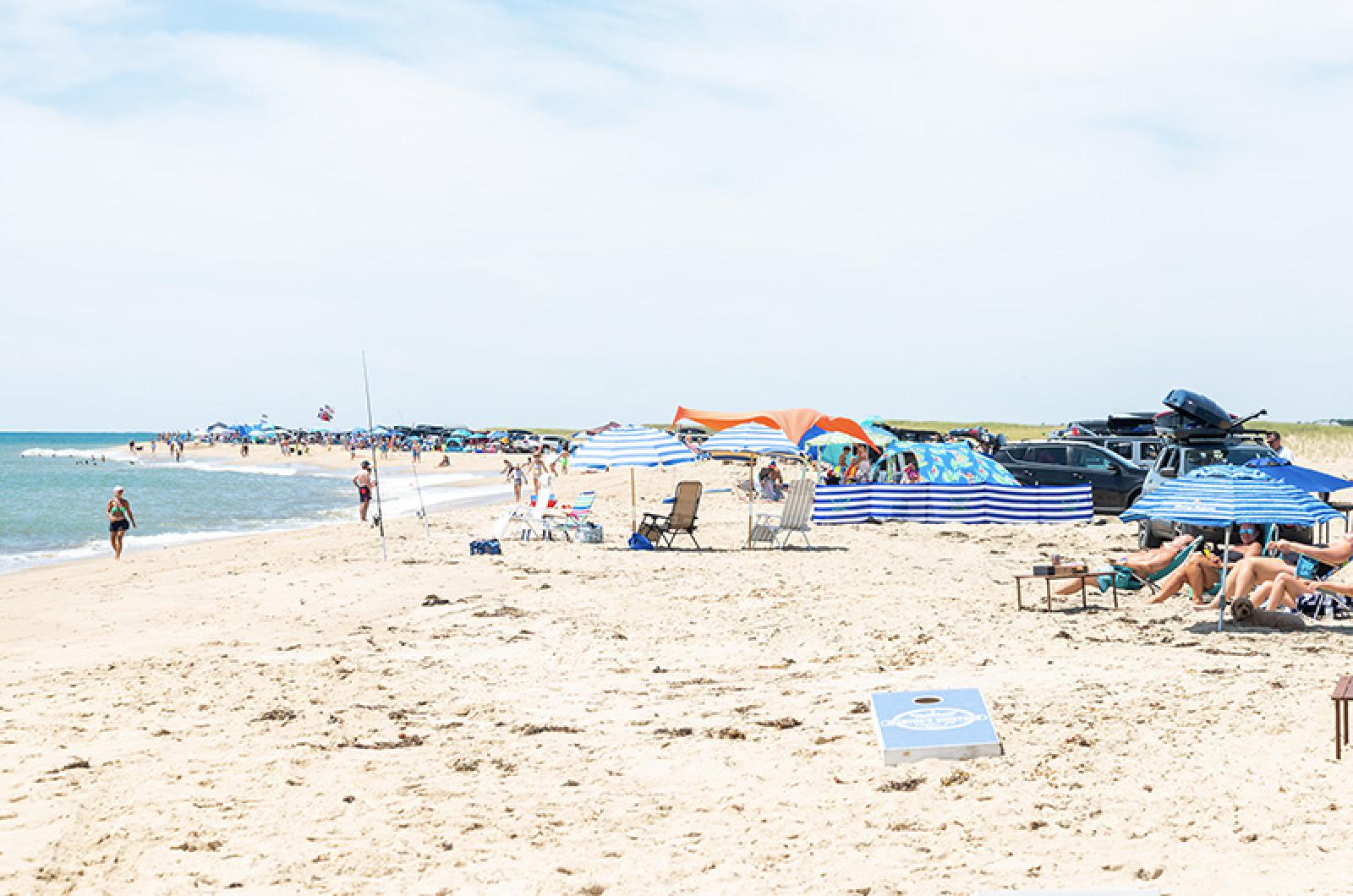

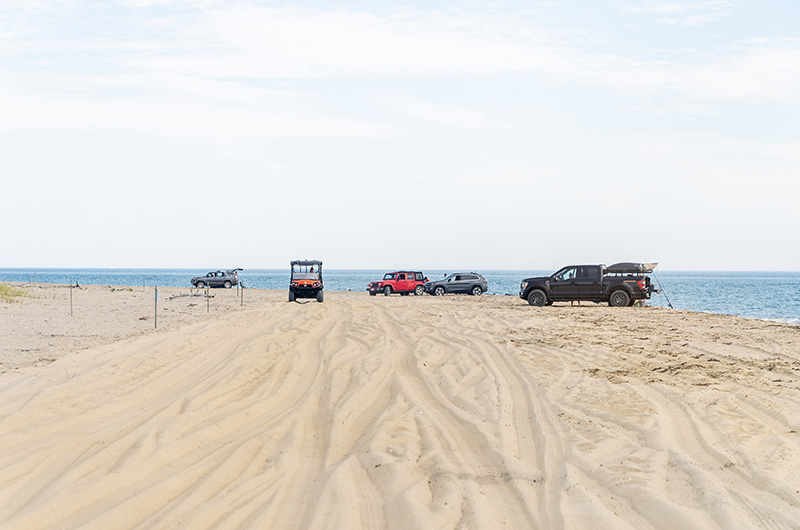
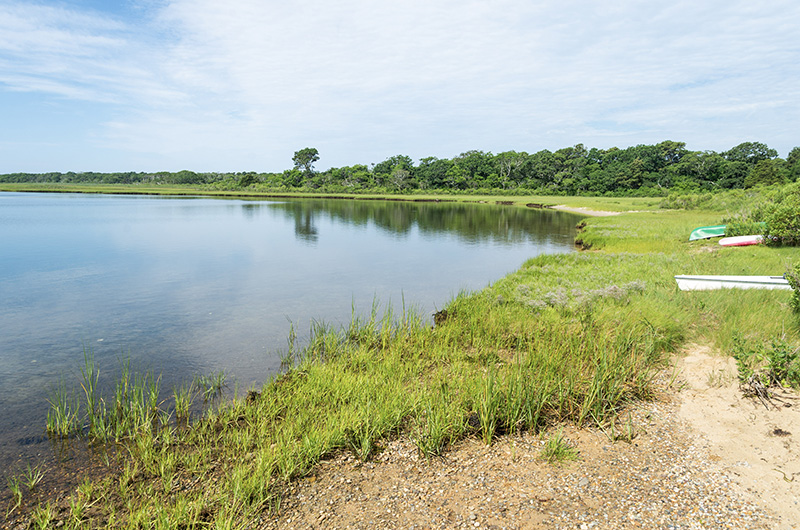

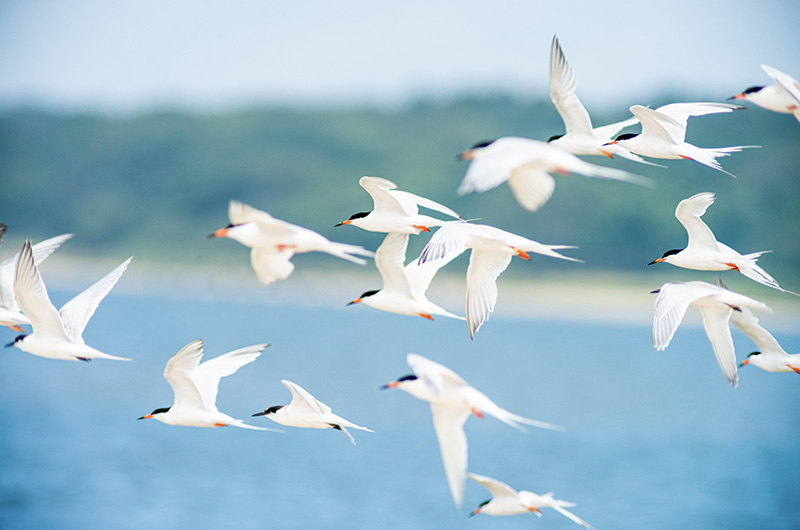

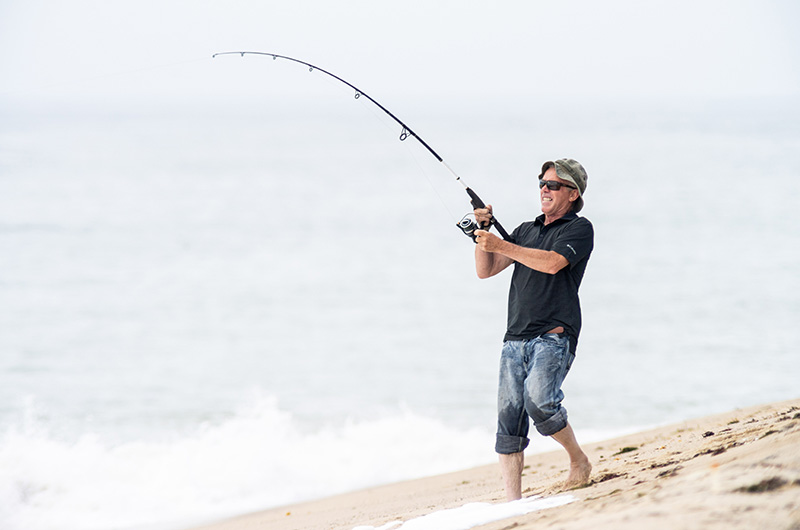

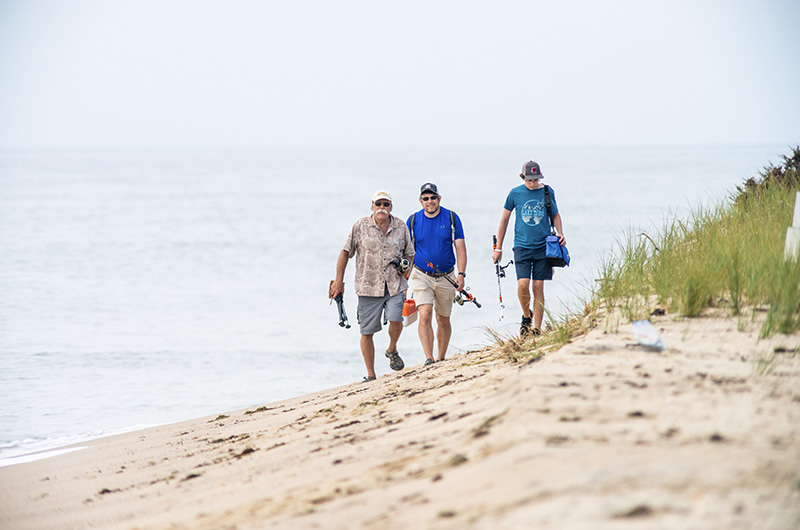




Comments (18)
Comments
Comment policy »